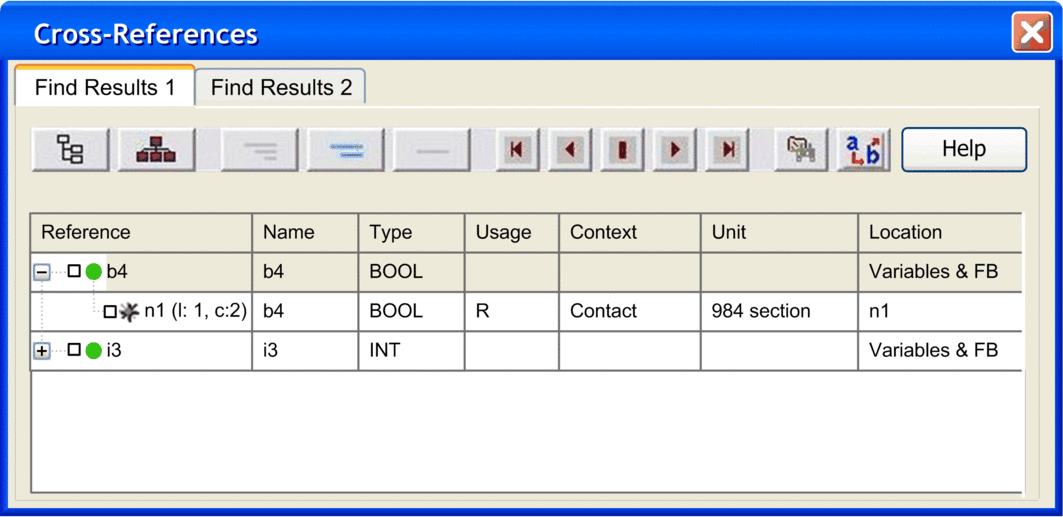Introduction
The search results dialog displays the results of a search.
Representation

Description
Elements of the dialog
Element |
Description |
|---|---|
tab tab |
Depending on the respective check box activated in the dialog, the search results are displayed in one of the 2 tabs. |
|
Displays the search results in a similar manner to the structural view in the . |
|
Displays the search results in a similar manner to the functional view in the . |
|
Displays the search results in form.
|
|
Displays the search results in form.
|
|
Displays the search results in form.
|
|
Selects the previous reference of the search results. |
|
Selects the next reference of the search results. |
|
Jumps directly to the currently selected found occurrence of the reference. |
|
Jumps directly to the previous found occurrence of the reference (for example into the containing network). |
|
Jumps directly to the next found occurrence of the reference. |
|
Opens the dialog. |
|
Displays/hides the area of the dialog. |
|
This column displays the name of the instance or type (DDT/IODDT/EFB/DFB) of the data searched for. The details displayed depend on the display settings described above (, , ). |
|
This column displays
|
|
This column displays
|
|
Specific context as defined in the Data Search Dialog. |
|
This column displays the unit of the . |
|
This column displays the location of the data searched for in a short form. |
Sorting Order
When the search results are displayed in or form sorting can only be done by or .
When the search results are displayed in form sorting can also be done by reference related columns (, , and ).
The search results are first sorted by their path (Program, Task, Segment, Section/Network).
The search results of sections/networks are sorted by a second key, depending on the kind of the section/network.
References within IEC language sections (FBD, LD, SFC, ST, IL) are sorted by row and column.
References within LL984 networks are sorted by column and row.
You can re-sort the search results by clicking on a specific column.
Re-sorting by multiple keys is not supported.














